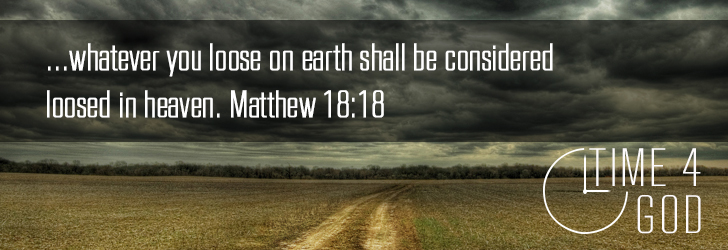What if Forgiveness Is Rejected?
A continuation of the previous day’s verse from Matthew 18:18 on the importance of forgiveness and what to do if it’s rejected.

I tell you solemnly, whatever you bind on earth shall be considered bound in heaven; whatever you loose on earth shall be considered loosed in heaven. Matthew 18:18
Yesterday I wrote about the importance of forgiveness and its power to heal and to liberate us from the weighty chains of anger and revenge. The text that was used was Matthew 18:18. The reflection dealt with the idea that forgiveness is the centerpiece of the Incarnation and, therefore, of our Christian faith. But in this world, and because of our fallen nature, the reality of rejection, even of hatred, must sometimes be faced with both courage and conviction. We may even have to accept the fact that we will be considered fools for believing and acting in accord with such a message.
[content-ad]
In verse 17 Jesus tells us that if our personal efforts, and those of the Church community fail to heal the rift between ourselves and the one who has wronged us, we are to, “treat him like a pagan or a tax collector.” This seems to have a human quality to it, doesn’t it. We have done what God wants us to do, the other has rejected our efforts, so we can legitimately turn away from him, or treat him as a stranger, an outcasts, or as a “sinner” separate from us. We can comfort ourselves and move on, even if the injury was not addressed and healed to our satisfaction. Ah, but then, Jesus hits us right between the running lights again with verses 21 and 22. “Then Peter went up to him and said, ‘Lord, how often must I forgive my brother if he wrongs me? As often as seven times?’ Jesus answered, ‘Not seven, I tell you, but seventy-seven times.” In scripture, the number seven is very significant. It symbolizes completion and perfection. Therefore, Jesus is not merely giving a mathematical number of times to forgive here, rather he is insisting on limitless forgiveness for the one who injures us.
This is the paradox in which our faith is rooted. Even though our forgiveness is rejected, and we no longer have to make the effort with the one who rejects it, our forgiveness must still remain in tact, it must still remain, within our hearts and within our minds. Jesus then tells the parable of the unforgiving debtor, whose king demanded he repay his very large debt. The man begged for mercy and the king, out of pity, forgave him the entiere debt. The man then goes to one of his own fellow servants who owes him a much smaller debt than he had owed to the king. This man begged him for more time, but instead, the man has this fellow servant thrown into prison till he had paid his debt. The king found out about this and sent for the man. “You wicked servant. I cancelled all the debt of yours when you appealed to me. Were you not bound, then, to have pity on your fellow servant just as I had pity on you?” Then he was turned over to the torturers till he paid his debt. That is how my heavenly Father will deal with you unless you forgive your brother from your heart.”
Jesus is that king. We are that servant who owes a great debt. Jesus forgave our debt on the cross. All of it. So, even if our forgiveness is rejected by those who have wronged us, we must keep that forgiveness alive in our hearts, for we will be forgiven in accord with how well we in turn have forgiven. So be it.
SKM: below-content placeholderWhizzco for FHB

